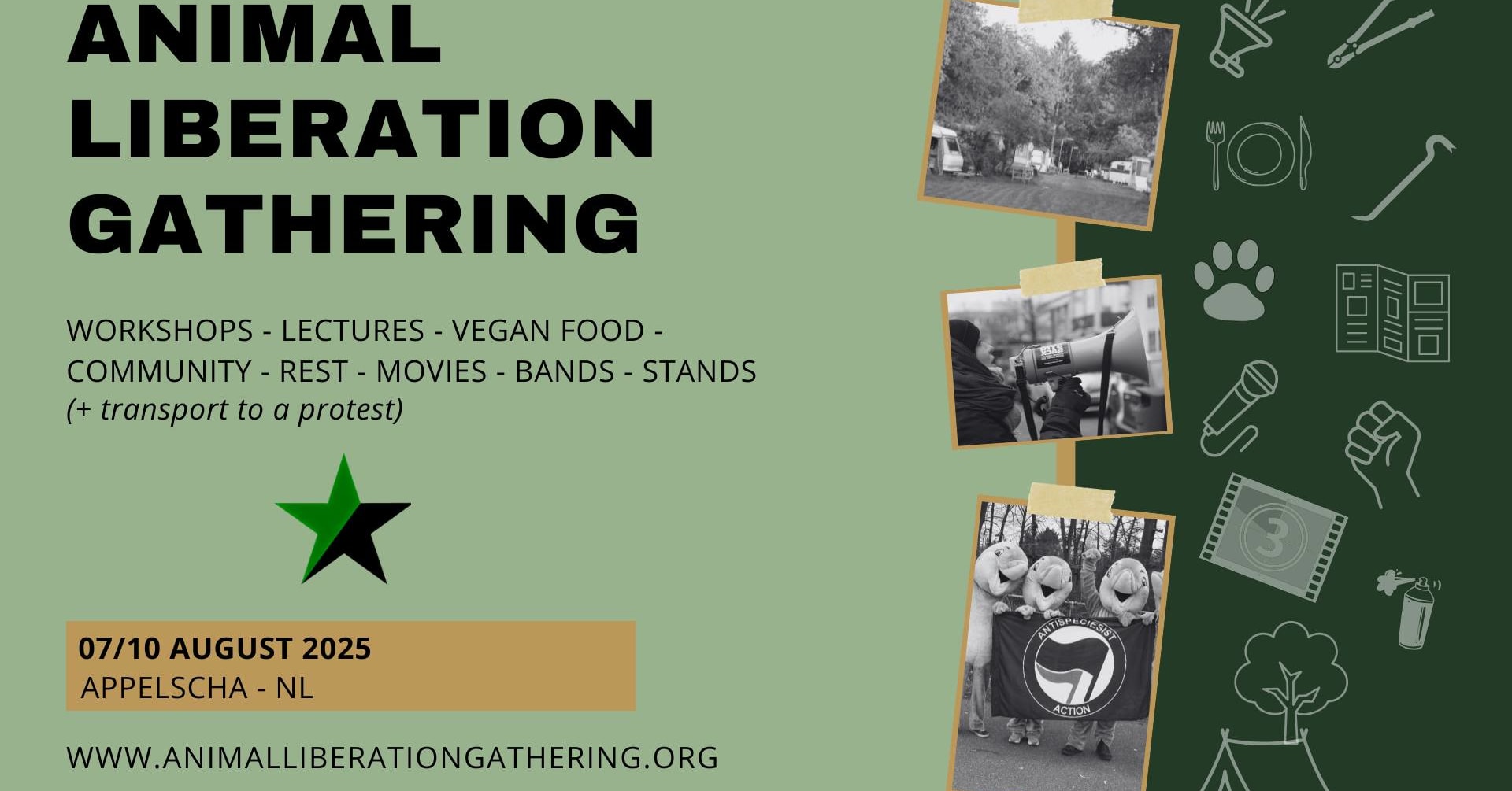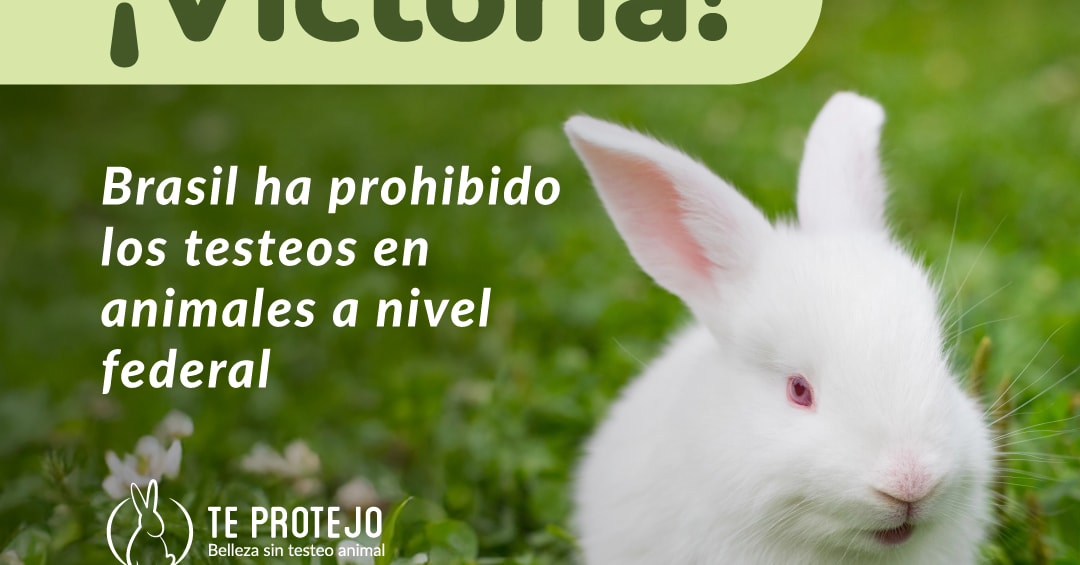The second edition of the Animal Liberation Gathering is coming up!
Last year we received so much positive feedback that we had no choice but to organize the Animal Liberation Gathering again this year.
This year it's going to be another long weekend packed with workshops, lectures, community, stands from various organizations, vegan food and rest. Will you join us?
The program
Soon we will start to announce the speakers. For that, keep an eye on this event and our pages.
Would you like to give a talk yourself or be a part of the program in any other way? Then get in touch via the form on the website.
Date
You are welcome from Thursday, August 7 to pitch your tent, explore the grounds and catch up. By then there will be dinner and an evening program.
Friday and Saturday there is going to be a full program. Sunday there will be a joint big protest organised by several organizations. We will arrange transportation from the campground.
Location
The Gathering will be held at the activist campsite Tot Vrijheidsbezinning, located right on the Drents-Friese Wold. How to get there can be found on the event website.
Sign up & more information
All information about the Gathering can be found here: https://animalliberationgathering.org/ . Through this website you can also confirm your participation.
Please note that (almost) the full program will be in English this year.
Hopefully we'll see you there!




More details on the Animal Liberation Gathering can be found on the website. We've added several parts of the program. And next weeks more is added.
I hope to see you there!